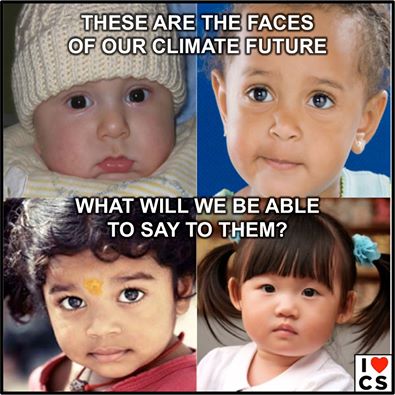2014 SkS Weekly Digest #21
SkS Highlights
Looking for connections by Marcin Popkiewicz garnered the most comments of the articles posted on SkS during the past week. The article details the exponential growth of global carbon emissions since the Industrial Revolution and highlights the reasons for the growth. Popkiewicz concludes with a brief discussion of the exponential growth of the risks generated by the tractectory of CO2 emissions. If you have not already read this insightful article, you will want to so so.
Be sure to check out the special section of this Digest, UQ and climate change research which is located immediately after the Poster of the Week.
El Niño Watch
Toon of the Week

h/t to I Heart Climate Scientists
Quote of the Week
"…Models are not right or wrong; they’re always wrong. They’re always approximations. The question you have to ask is whether a model tells you more information than you would have had otherwise. If it does, it’s skillful…." - Gavin Scmidt
Gavin Schmidt on Why Climate Models are Wrong, and Valuable by Andrew C. Revkin, Dot Earth, New York Times, May 22, 2014
SkS Spotlights
The fight for environmental justice broadens, deepens and becomes more militant.
New Environmentalists Are Taking Bold Actions — and It's Working by Kevin Zeese and Margaret Flowers, Alternet, May 23, 2014
Poster of the Week

UQ and climate change research
20 May 2014
The following is a statement from UQ acting Pro-Vice-Chancellor (Research and International) Professor Alastair McEwan.
Recent media coverage (The Australian, 17 March 2014) has stated that The University of Queensland is trying to block climate research by stopping the release of data used in a paper published in the journal Environmental Research Letters.
This is not the case. All data relating to the “Quantifying the Consensus on Anthropogenic Global Warming in the Scientific Literature” paper that are of any scientific value were published on the websiteSkepticalscience.com in 2013.
Only information that might be used to identify the individual research participants was withheld.
This was in accordance with University ethical approval specifying that the identity of participants should remain confidential.
Media: communications@uq.edu.au, ph +617 3365 1120.
*This statement has been updated to reflect the correct publication date of The Australian article.
Note: The above statement was originally posted on the website of the University of Queensland. Click here to access the posting.
Insurance Industry Watch
The third National Climate Assessment report — released on May 6 by the White House, and representing the work of more than 240 scientists — warns us about our hazardous future and offers many good ideas for dealing with it. But a most important point may be lost in the crowd.
After discussing how to mitigate the coming dangers, the report says, “Commercially available mechanisms such as insurance can also play a role in providing protection against losses due to climate change.” That sentence should have been in big, bold letters and underlined.
That’s because of the substantial risk that efforts to stop global warming will fail. The implications are staggering, and we must encourage private innovation and government support to insure against the devastating financial losses that will result.
Buying Insurance Against Climate Change by Robert J. Shiller, The Upshot, New York Times, May 24, 2014
SkS Week in Review
Coming Soon on SkS
Mother Nature Always Bats Last!
Continuous, heavy rainfall, starting on 13 May 2014, resulted in extensive flooding in Serbia, Bosnia and Herzegovina (BiH) and Croatia, killing at least 53 people. In Serbia, more than 1.6 million people are affected by the floods (22% of the population). The most affected areas include Belgrade City and the municipalities of Obrenovac, Lazarevac and Grocka. More than 31,000 people have been evacuated. In BiH, an estimated 1.5 million people are affected (39% of the population). The most affected areas are Bosanski Šamac, Odžak, Orašje, Doboj, Bijeljina, Br?ko, Maglaj. More than 950,000 have had to evacuate their homes. In Croatia, 38,000 people are affected. The most affected towns and villages are Gunja, Rajevo Selo, Ra?inovci, Posavski Podgajci, Vrbanja, Drenovci, Strošinci, ?uri?i and Bošnjaci. (ACAPS, 23 May 2014)
In mid-April, intense rainfalls followed with moderate snowfalls had affected the western, eastern and southern parts of Serbia (IFRC, 25 Apr 2014). Flooding was also reported in Romania and Bulgaria (ECHO, 24 Apr 2014).
Balkans: Floods - May 2014, Reliefweb.int
Posted by John Hartz on Monday, 26 May, 2014



